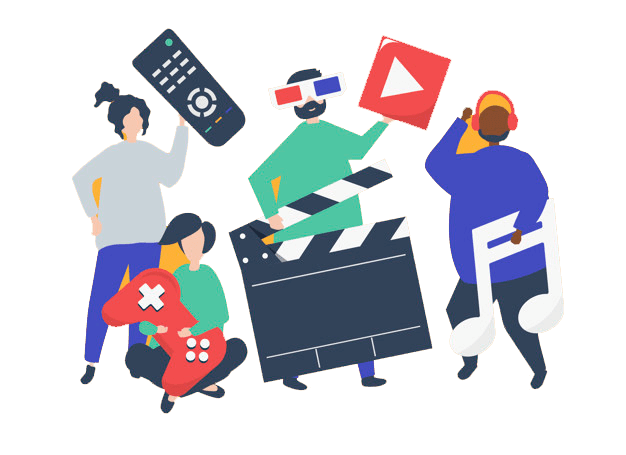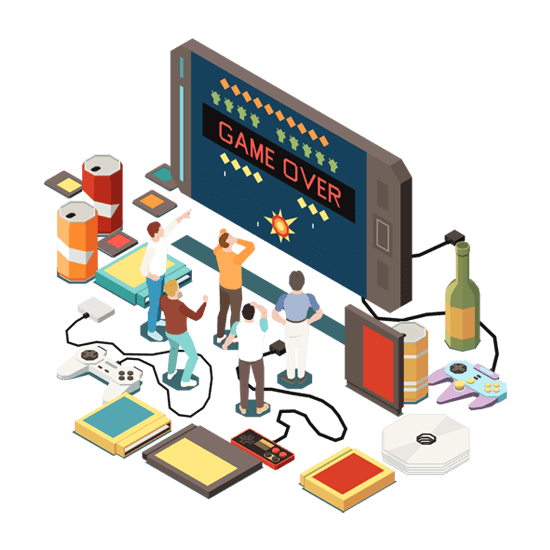
Game development is emerging as a top trend in the current market. With the penetration of smartphones and latest technologies, every other business owner wants to develop his own game application to stay ahead of the curve. However, game development is a hard nut to crack; it is a very lengthy and expensive process that includes various stages of game development.
Game development process is not an overnight task, it requires time and patience. The key to making your game a big success is a unique and attractive storyline. An ideal game should have high-visuals, unique characters, attractive themes, user-friendly interface, and outstanding features to beat the competition. Game developers must integrate latest tools, technologies and game development engines to create interactive and engaging game applications.
Before we deep-dive into the stages of game development, let’s first understand the foundation of game development; basic game design principles.
Basic game design principles
Game design plays an important role in the game development process, it can make or make your game application. As a mobile game developer, you must focus on creating an engaging and interactive game design to provide gamers a differentiated gaming experience.
Follow the below mentioned game design principles to make your mobile game design stand out from the crowd.
| Game Design Principle | Description |
| Gameplay mechanics | Gameplay mechanics refers to the process that guides gameplay. For a successful game design, you need to first define gameplay mechanics, including rules and regulations of a particular game, helping players to understand the game clearly. |
| Define Levels | Define game levels to keep players hooked. Start from simple to complex and highly complex levels to entice players and augment their level of excitement. |
| Rewards | Give players rewards, badgers, or points on the completion of a hard game level. This will increase the engagement. |
| Flexile gameplay options | Provide flexible gameplay options, including customisable features, characters, shortcuts, etc. |
| Explain mission | Set a robust mission and purpose for your game. This will help you keep your players engaged until the mission ends. |
What are the stages of game development?
Game development includes the contributed efforts of game developers, game designers, and programmers. Multiplatform game development requires desired skill sets, innovative features, and integration of latest technologies such as AR, VR, AI, ML, etc. Here we have listed 5 stages of game development that you will be needing to development your own mobile game app:
Stage 1 – Pre-production
First stage includes market research and planning of the game app development. The pre-production phase is broadly classified into following steps:
Market research– Before developing a game app, you must first research about the market segment, including competitors, gaming market trends, gaming technologies, tools, etc.
Set target market– After market research, make sure to set target audience and determine for whom you are creating this game.
Selection of a platform– Wisely select your gaming platform as per the customer preferences and your coding abilities.
Theme and art selection – Plan for theme, characters, props, environment and other elements related to the art and design of the game.
Budget of game development – Plan your budget and costing for the game app. Also decide what type of monetization you want from your game development. These types include money from ads, or in-game purchase.
Distribution of resources – Plan the number of equipments, specialists that are required in your game development.
Risk management plan – Predict future risks to manage and mitigate the effect of future damage.
Marketing strategy – Select a marketing strategy for your game app promotion.
Stage 2- Production
The production stage is the crucial stage of the product development process. It is the most labour-intensive stage which requires the efforts of designers, programmers, sound managers, etc. This stage is further divided into several categories such as:
Game Prototyping
Game prototyping is a basic method to test and check the idea of a game. It refers to the process of playtest that is used to check the main mechanics used in the game.
Art and design
In the art and design segment, the visual content creation takes place. This means, game designers need to design characters, environment, props and other game assets of the game application. The design basically depends on the format of the game (2D/3D).
Design game levels
Besides character and props design, make sure to design game levels to define clear targets and goals to players who will be playing your game.
Plan for audio and voice
Sound plays an important role in game development. Hire best sound specialists that can help you create sound effects of different signals presented in your game app.
Programming
When you put all the game elements together, it’s time for programmers to write codes and use game engines and technologies to align content to develop your game.
Stage 3 – Testing
In order to do a quality check, your game app needs to go through testing. Game platform requires testing to ensure players it is bug-free. A single bug can break your player experience by making your mobile game application slow. The testing is further classified into two categories; functional game testing and non-functional game testing.
Here are some things a playtester may point out during this stage:
Are there buggy areas or levels?
Is everything rendering on the screen?
Can I walk through this wall or a locked environment?
Are there features I can use to exploit the game?
Does my character get permanently stuck in this spot?
Is the character dialogue stale and boring?
| Functional game testing types | Non-functional game testing types |
| Regression game testing | Load game testing |
| Localization game testing | Stress game testing |
| Interoperability game testing | Performance game testing |
| Smoke game testing | Compliance game testing |
| User acceptance game testing | Installation game testing |
| Security access control game testing | Disaster recovery game testing |
Stage 4 – Game launch
This is the most awaited phase, where all you need to do is launch your developed game.
However, launch is not just the thing in this stage, the developer team also needs to check flaws or errors simultaneously to make sure that the launched app is bug-free and error-free.
In addition to bug squashing, developers will typically polish the game as much as possible before it launches. Maybe that mountain range can have more depth. Perhaps the character’s leather straps can be more textured. Let’s finally get around to making those trees sway in the wind. These types of changes, though minor, can be important for making a video game more immersive.
Stage 5- Post-production
After the successful game launch, you also need to fulfil the post-production formalities, including continuous monitoring and improving the functioning of the game app if required. Also, you need to check the technical requirements, performance and stability of the developed game.
Final words
As we have explained, the game development process involves various stages right from pre-production, designing to post-production. Many game development company outsource the game development in order to manage their risks and costs. If you are planning to develop your own mobile game app, make sure to follow the above mentioned game design principles and game development stages to make your application cut above the rest. in this article we discuss how to make a successful game and learn about game development company. If you’re interested in building a video game or want to polish your skillset to join a game app development company, you should look into today’s best programming languages for games.






